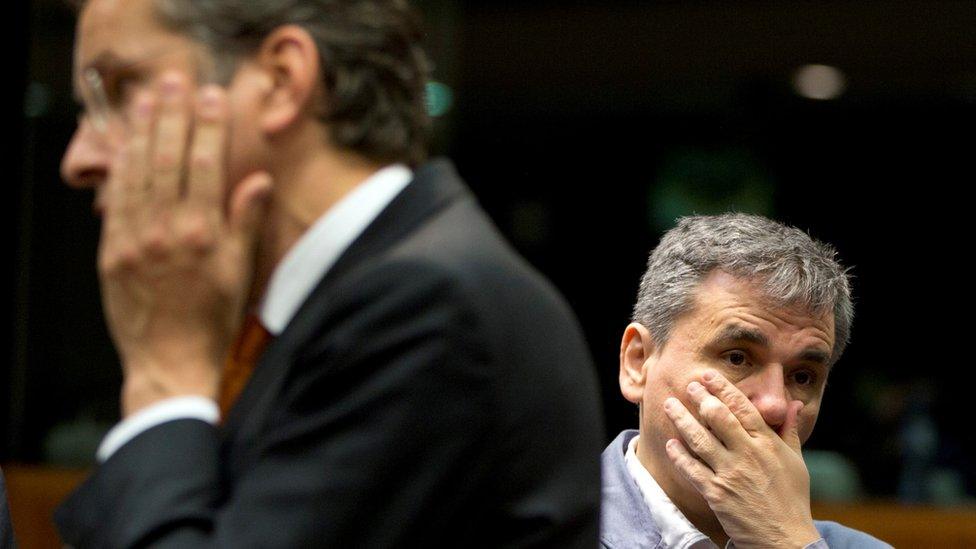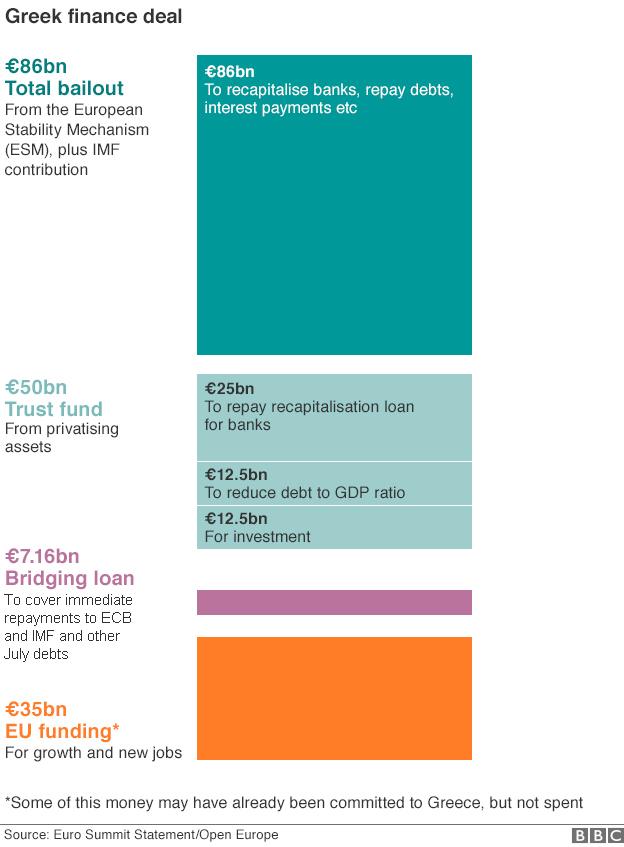Greece bailout: IMF queries eurozone debt relief deal
- Published

Greek Finance Minister Euclid Tsakalotos (right) spent the night negotiating in Brussels
The International Monetary Fund (IMF) has announced it is not yet ready to join the EU's new bailout for Greece, saying it needs further details.
A senior IMF official told reporters in Washington that EU creditors had yet to specify what debt relief measures they planned to take.
Earlier, eurozone finance ministers agreed on debt relief for Greece.
They had long been at odds over the issue, with Germany in particular opposed to forgiving debt.
As a result of that agreement in Brussels, the ministers agreed with Greece to unlock a further 10.3bn euros ($11.5bn; £7.8bn) in loans.
Athens needs this tranche of cash to meet debt repayments due in July.
The Greek government owes its creditors more than €300bn - about 180% of its annual economic output (GDP).
Debt relief is considered by the IMF to be essential for Greece. A third bailout, worth €86bn, was agreed last year.
'We have not conceded'
The IMF required a "clear, detailed Greek debt restructuring plan" before it could approve the bailout, the senior official was quoted as saying by The Wall Street Journal.
"Greece is in a situation where it needs a disbursement, and so we were certainly willing to concede on some points," the official, who was speaking on condition of anonymity, was quoted by AFP news agency as saying.
"But we have not conceded on the point that we need adequate assurances regarding debt relief before we go to our board."
According to a Greek Public TV correspondent, external, the official added: "We certainly believe that we are making progress because debt relief is on the agenda - all stakeholders recognise that debt is highly unsustainable."
After marathon talks in Brussels, the 19 eurozone ministers said a deal had been made possible by Greece's economic reforms and called it a "breakthrough".
The debt relief they agreed on refers to extending the repayment period and capping interest rates.
As a condition of the deal, the Greek parliament had passed new budget cuts and tax rises at the weekend.
The previous two international bailouts, agreed by both the EU and IMF, totalled €240bn, with political turmoil accompanying each new loan negotiation since 2010.
Syriza, the leftist coalition currently in government, narrowly won the last election in September after asking voters to accept the third bailout.
Third bailout
